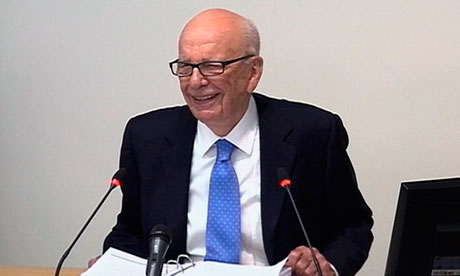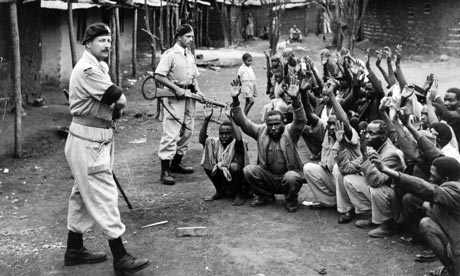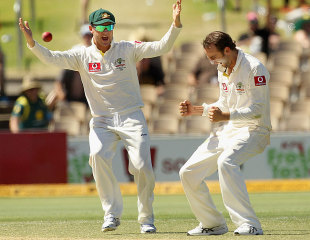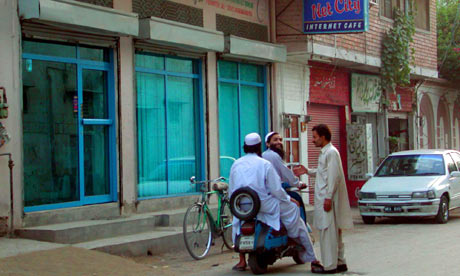By Dilip Hiro
The
following ingredients should go a long way to
produce a political thriller. Mr M, a jihadi in an
Asian state, has emerged as the mastermind of a
terrorist attack in a neighboring country, which
killed six Americans. After sifting through a vast
cache of intelligence and obtaining a legal
clearance, the State Department announces a $10
million bounty for information leading to his
arrest and conviction. Mr M promptly appears at a
press conference and says, "I am here. America
should give that reward money to me."
A
State Department spokesperson explains lamely that
the reward is meant for incriminating evidence
against Mr M that would stand up in court. The
prime minister of M's home state condemns foreign
interference in his country's internal affairs. In the midst of this
imbroglio, the US decides to release $1.18 billion
in aid to the cash-strapped government of the
defiant prime minister to persuade him to reopen
supply lines for US and North Atlantic Treaty
Organization (NATO) forces bogged down in the
hapless neighboring Islamic Republic of
Afghanistan.
Alarmingly, this is anything
but fiction or a plot for an upcoming
international sitcom. It is a brief summary of the
latest development in the fraught relations
between the US and Pakistan, two countries locked
into an uneasy embrace since September 12, 2001.
Mr M is Hafiz Muhammad Saeed, a
62-year-old former academic with a tapering,
hennaed beard, and the founder of the Lashkar-e
Taiba (the Army of the Pure, or LeT), widely
linked to several outrageously audacious terrorist
attacks in India.
The LeT was formed in
1987 as the military wing of the Jammat-ud Dawa
religious organization (Society of the Islamic
Call, or JuD) at the instigation of the Pakistani
army's formidable intelligence agency,
Inter-Services Intelligence (ISI). The JuD owes
its existence to the efforts of Saeed, who founded
it in 1985 following his return to his native
Lahore after two years of advanced Islamic studies
in Riyadh, Saudi Arabia, under the guidance of
that country's grand mufti, Shaikh Abdul Aziz bin
Baz.
On its formation, the LeT joined the
seven-year-old anti-Soviet jihad in Afghanistan,
an armed insurgency directed and supervised by the
ISI with funds and arms supplied by the Central
Intelligence Agency (CIA) and the Saudis. Once the
Soviets withdrew from Afghanistan in 1989, the
Army of the Pure turned its attention to a
recently launched anti-Indian jihad in
Indian-administered Kashmir and beyond.
The terrorist attacks attributed to it
range from the devastating multiple assaults in
Mumbai in November 2008, which resulted in 166
deaths, including those six Americans, to a foiled
attack on the Indian parliament in New Delhi in
December 2001, and a successful January 2010
attack on the airport in Kashmir's capital
Srinagar.
In January 2002, in the wake of
Washington's launching of the "war on terror",
Pakistan formally banned the LeT, but in reality
did little to curb its violent cross-border
activities. Saeed remains its final authority. In
a confession, offered as part of a plea bargain
after his arrest in October 2009 in Chicago, David
Coleman Headley, a Pakistani-American operative of
LeT involved in planning the Mumbai carnage, said:
"Hafiz Saeed had full knowledge of the Mumbai
attacks and they were launched only after his
approval."
In December 2008, the United
Nations Security Council declared the JuD a front
organization for the banned LeT. The provincial
Punjab government then placed Saeed under house
arrest using the Maintenance of Public Order law.
But six months later, the Lahore High Court
declared his confinement unconstitutional.
In August 2009, Interpol issued a Red
Corner Notice, essentially an international arrest
warrant, against Saeed in response to Indian
requests for his extradition. Saeed was again put
under house arrest but in October the Lahore High
Court quashed all charges against him due to lack
of evidence.
It is common knowledge that
Pakistani judges, fearing for their lives,
generally refrain from convicting high-profile
jihadis with political connections. When, in the
face of compelling evidence, a judge has no option
but to order the sentence enjoined by the law, he
must either live under guard afterwards or leave
the country.
Such was the case with Judge
Pervez Ali Shah who tried Mumtaz Qadri, the jihadi
bodyguard who murdered Punjab's governor Salman
Taseer for backing an amendment to the
indiscriminately applied blasphemy law. Soon after
sentencing Qadri to capital punishment last
October, Shah received several death threats and
was forced into self-exile.
Aware of the
failures of the Pakistani authorities to convict
Saeed, US agencies seemed to have checked and
cross-checked the authenticity of the evidence
they had collected on him before the State
Department announced, on April 2, its reward for
his arrest. This was nothing less than an implied
declaration of Washington's lack of confidence in
the executive and judicial organs of Pakistan.
Little wonder that Pakistani Prime
Minister Yousaf Raza Gilani took umbrage,
describing the US bounty as blatant interference
in his country's domestic affairs. Actually, this
is nothing new. It is an open secret that, in the
ongoing tussle between Pakistani President Asif
Ali Zardari and his bete noire, army chief of
staff General Ashfaq Parvez Kiani, the Barack
Obama administration has always backed the
civilian head of state. That, in turn, has been a
significant factor in Gilani's stay in office
since March 2008, longer than any other prime
minister in Pakistan's history.
How to
trump a superpower Given such strong
cards, diplomatic and legal, why then did the
Obama administration commit itself to releasing
more than $1 billion to a government that has
challenged its attempt to bring to justice an
alleged mastermind of cross-border terrorism?
The answer lies in what happened at two
Pakistani border posts about two kilometers from
the Afghan frontier in the early hours of November
26, 2011. NATO fighter aircraft and helicopters
based in Afghanistan carried out a two-hour-long
raid on these posts, killing 24 soldiers.
Enraged, Pakistan's government shut the
two border crossings through which the US and NATO
had until then sent a significant portion of their
war supplies into Afghanistan. Its officials also
forced the US to vacate Shamsi air base, which was
being used by the CIA as a staging area for its
drone air war in Pakistan's tribal areas along the
Afghan border. The drone strikes are exceedingly
unpopular - one poll found 97% of respondents
viewed them negatively - and they are vehemently
condemned by a large section of the Pakistani
public and its politicians.
Furthermore,
the government ordered a comprehensive review of
all programs, activities and cooperation
arrangements with the US and NATO. It also
instructed the country's two-tier parliament to
conduct a thorough review of Islamabad's relations
with Washington. Having taken the moral high
ground, the Pakistani government pressed its
demands on the Obama administration.
An
appointed Parliamentary Committee on National
Security (PCNS) then deliberately moved at a
snail's pace to perform the task on hand, while
the Pentagon explored alternative ways of ferrying
goods into Afghanistan via other countries to
sustain its war there.
By contrast, a
vociferous campaign against the reopening of the
Pakistani supply lines led by the Difa-e Pakistan
Council (Defense of Pakistan), representing 40
religious and political groups, headed by Hafiz
Saeed, took off. Its leaders have addressed huge
rallies in major Pakistani cities. It was quick to
condemn Washington's bounty on Saeed, describing
it as "a nefarious attempt" to undermine the
council's drive to protect the country's
sovereignty.
Meanwhile, the loss of the
daily traffic of 500 trucks worth of food, fuel
and weapons from the Pakistani port of Karachi
through the Torkham and Chaman border crossings
into Afghanistan, though little publicized in US
media, has undermined the fighting capability of
US and NATO forces.
"If we can't negotiate
or successfully renegotiate the reopening of
ground lines of communication with Pakistan, we
have to default and rely on India and the Northern
Distribution Network (NDN)," said a worried
Lieutenant General Frank Panter to the Readiness
Subcommittee of the Armed Services Committee of
the US House of Representatives on March 30. "Both
are expensive propositions and it increases the
deployment or redeployment."
The
main part of the NDN is a 3,220-mile (5,100
kilometer) rail network for transporting supplies
between the Latvian port of Riga and the Uzbek
town of Termez (connected by a bridge over the
Oxus River to the Afghan settlement of Hairatan).
According to the Pentagon, it costs nearly $17,000
per container to go through the NDN compared to
$7,000 through the Pakistani border crossings.
Moreover, US and NATO are allowed to
transport only "non-lethal goods" through the NDN.
Other military officials have warned that
the failure to reopen the Pakistani routes could
even delay the schedule for withdrawing American
"combat troops" from Afghanistan by 2014. That
would be bad news for the Obama White House with
the latest Washington Post/NBC News poll showing
that, for the first time, even a majority of
Republicans believe the Afghan war "has not been worth fighting". A
CBS News/New York Times survey indicated that
support for the war was at a record low of 23%,
with 69% of respondents saying that now was the
time to withdraw troops.
In the Pakistani
capital, Islamabad, the PCNS finally published a
list of preconditions that the US must meet for
the reopening of supply lines. These included an
unqualified apology for the air strikes last
November, an end to drone attacks, no more "hot
pursuit" by US or NATO troops inside Pakistan, and
the taxing of supplies shipped through Pakistan.
Much to the discomfiture of the Obama
administration, a joint session of the National
Assembly and the senate called to debate the PCNS
report took more than two weeks to reach a
conclusion.
On April 12, parliament
finally unanimously approved the demands and added
that no foreign arms and ammunition should be
transported through Pakistan. The Obama
administration is spinning this development not as
an ultimatum but as a document for launching talks
between the two governments.
Even so, it
has strengthened Gilani's hand as never before.
Furthermore, he has to take into account the
popular support the Saeed-led Difa-e Pakistan
Council is building for keeping the Pakistani
border crossings permanently closed to NATO
traffic. Thus, Saeed, a jihadi with a US bounty on
his head, has emerged as an important factor in
the complex Islamabad-Washington relationship.
Squeezing Washington: The pattern
There is, in fact, nothing new in the way
Islamabad has been squeezing Washington lately. It
has a long record of getting the better of US
officials by identifying areas of American
weakness and exploiting them successfully to
further its agenda.
When the Soviet bloc
posed a serious challenge to the US, the
Pakistanis obtained what they wanted from
Washington by being even more anti-Soviet than
America. Afghanistan in the 1980s is the classic
example.
Following the Soviet military
intervention there in December 1979, the Pakistani
dictator General Muhammad Zia ul-Haq volunteered
to join Washington's Cold War against the Kremlin
- but strictly on his terms. He wanted sole
control over the billions of dollars in cash and
arms to be supplied by the US and its ally Saudi
Arabia to the Afghan mujahideen (holy warriors) to
expel the Soviets from Afghanistan. He got it.
That enabled his commanders to channel a
third of the new weapons to their own arsenals for
future battle against their archenemy, India.
Another third were sold to private arms dealers on
profitable terms. When pilfered US weapons began
appearing in arms bazaars of the Afghan-Pakistan
border towns (as has happened again in recent
years), the Pentagon decided to dispatch an audit
team to Pakistan.
On the eve of its
arrival in April 1988, the Ojhiri arms depot
complex, containing 10,000 tons of munitions,
mysteriously went up in flames, with rockets,
missiles and artillery shells raining down on
Islamabad, killing more than 100 people.
By playing on Ronald Reagan's view of the
Soviet Union as "the evil empire", Zia also
ensured that the American president would turn a
blind eye on Pakistan's frantic, clandestine
efforts to build an atom bomb. Even when the CIA,
the National Security Agency and the State
Department determined that a nuclear weapon
assembled by Pakistan had been tested at Lop Nor
in China in early 1984, Reagan continued to
certify to congress that Islamabad was not
pursuing a nuclear weapons program in order to
abide by a law which prohibited US aid to a
country doing so.
Today, there are an
estimated 120 nuclear bombs in the arsenal of a
nation that has more Islamist jihadis per million
people than any other country in the world. From
October 2007 to October 2009, there were at least
four attacks by extremists on Pakistani army bases
known to be storing nuclear weapons.
In
the post-9/11 years, Pakistan's ruler General
Pervez Musharraf managed to repeat the process in
the context of a new Afghan war. He promptly
joined president George W Bush in his "war on
terror", and then went on to distinguish between
"bad terrorists" with a global agenda (al-Qaeda),
and "good terrorists" with a pro-Pakistani agenda
(the Afghan Taliban).
Musharraf's ISI then
proceeded to protect and foster the Afghan
Taliban, while periodically handing over al-Qaeda
militants to Washington. In this way, Musharraf
played on Bush's soft spot - his intense loathing
of al-Qaeda - and exploited it to further
Pakistan's regional agenda.
Emulating the
policies of Zia and Musharraf, the post-Musharraf
civilian government has found ways of diverting US
funds and equipment meant for fighting al-Qaeda
and the Taliban to bolster their defenses against
India. By inflating the costs of fuel, ammunition
and transport used by Pakistan's 100,000 troops
posted in the Afghan-Pakistan border region,
Islamabad received more money from the Pentagon's
Coalition Support Fund (CSF) than it spent. It
then used the excess to buy weapons suitable for
fighting India.
When the New York Times
revealed this in December 2007, the Musharraf
government dismissed its report as "nonsense". But
after resigning as president and moving to London,
Musharraf told Pakistan's Express News television
channel in September 2009 that the funds had
indeed been spent on weapons for use against
India.
Now, the widely expected release of
the latest round of funds from the Pentagon's CSF
will raise total US military aid to Islamabad
since 9/11 to $14.2 billion, two-and-a-half times
the Pakistani military's annual budget.
There is a distinct, if little discussed,
downside to being a superpower and acting as the
self-appointed global policeman with a multitude
of targets. An arrogance feeding on a feeling of
invincibility and an obsession with winning every
battle blind you to your own impact and even to
what might be to your long-term benefit. In this
situation, as your planet-wide activities become
ever more diverse, frenzied, and even
contradictory, you expose yourself to exploitation
by lesser powers otherwise seemingly tied to your
apron strings.
Pakistan, twice during
America's 33-year-long involvement in Afghanistan
made a frontline state, is a classic example of
that. Current policymakers in Washington should
take note: it's a strategy for disaster.
Dilip Hiro, a TomDispatch
regular, is the author of 33 books, the most
recent being the just-published Apocalyptic
Realm: Jihadists in South Asia (Yale
University Press, New Haven and London).
(Copyright 2012 Dilip Hiro.)






 139 Comments
139 Comments




